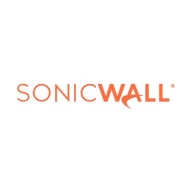

Fortinet FortiClient and SonicWall NetExtender are popular cybersecurity solutions. Fortinet FortiClient seems to have the upper hand in pricing and customer support, while SonicWall NetExtender is preferred for its feature set, making it worth the price.
Features: Fortinet FortiClient offers endpoint protection, VPN capabilities, and integration with Fortinet's security fabric. SonicWall NetExtender provides strong remote access tools, secure mobile access, and seamless integration with SonicWall firewalls.
Room for Improvement: Fortinet FortiClient users suggest better reporting functionalities, performance optimization, and more user-friendly interfaces. SonicWall NetExtender users recommend enhancements in stability, reducing connection drops, and improving software updates.
Ease of Deployment and Customer Service: Fortinet FortiClient is praised for straightforward deployment and reliable customer service. SonicWall NetExtender receives positive feedback for its simple installation process but has mixed reviews regarding customer service.
Pricing and ROI: Fortinet FortiClient is noted for its competitive pricing and favorable ROI according to user reviews. SonicWall NetExtender also offers good ROI but is considered slightly pricier.
| Product | Market Share (%) |
|---|---|
| Fortinet FortiClient | 7.2% |
| SonicWall Netextender | 3.1% |
| Other | 89.7% |

| Company Size | Count |
|---|---|
| Small Business | 59 |
| Midsize Enterprise | 23 |
| Large Enterprise | 25 |
| Company Size | Count |
|---|---|
| Small Business | 10 |
| Midsize Enterprise | 2 |
| Large Enterprise | 2 |
FortiClient is a fabric agent that delivers endpoint protection, endpoint compliance, and secure access in a single, lightweight, lightweight client, providing visibility, information, and control to your endpoints. In addition, it enables secure, remote connectivity to the security fabric. It also integrates network and endpoint with segmentation and automation. FortiClient enables unified endpoint awareness by sharing endpoint telemetry with the security fabric. It is compatible with third-party EDR (endpoint detection and response and anti-malware solutions.
The FortiClient fabric agent can:
• Report on the status of a device, including firmware version and applications running.
• Send all suspicious files to a fabric sandbox.
• Enforce USB control, application control, URL filtering, and firmware upgrade policies.
• Provide application firewall service and malware protection.
• Enable devices to connect securely to the security fabric over either ZTNA tunnels or VPN (IPsec or SSL), both encrypted. The connection to the security fabric can be either a SASE service or a FortiGate next-generation firewall.
You can purchase FortiClient with one of three levels of capability:
Zero Trust security - The ZTNA edition enables both VPN and ZTNA encrypted tunnels, as well as USB device control and URL filtering.
Endpoint security - The EPP/APT edition adds AI-based NGAV (next-generation antivirus), application firewall, endpoint quarantine, and support for cloud sandbox.
Cloud-based endpoint security
Benefits and Features
• Fabric agent leverages integrations and provides telemetry information to the rest of the Fortinet security fabric.
• SAAS control and web/content filtering
• Dynamic access control helps with automation and simplifies compliance.
• Software inventory management enables visibility as well as management of licenses.
• Automated response detects and isolates any endpoints that may be compromised.
• ZTNA delivers better remote access and consistent application access policies
• Managed endpoint security services remotely assist with setup, configuration, deployment, vulnerability monitoring, and overall monitoring of endpoint security.
Reviews from Real Users:
PeerSpot users like that FortiClient is easy to use and integrates well with other solutions. They also appreciate the richness of its features and find it to be inexpensive in comparison to other products that require separate purchases for separate features.
SonicWall Netextender provides secure remote access, supporting remote work with valuable features like two-factor authentication, low latency, and integration with Microsoft identity management.
SonicWall Netextender facilitates secure client-to-site VPN connections for remote staff, integrating seamlessly with Microsoft identity management and using existing credentials like Active Directory. Its cost-effectiveness and detailed documentation attract enterprises in sectors such as insurance, healthcare, and education. Despite excellent control over routing, the intuitive setup could be improved, with users experiencing performance and licensing flexibility issues, especially with multi-factor authentication. While integration with SAML ensures seamless authentication, high bandwidth consumption and the outdated interface are mentioned for enhancement. Overall, SonicWall Netextender supports remote file transfers and access to Microsoft 365 portals, although additional features like automatic connection on startup and AI integration would address current user demands.
What features does SonicWall Netextender offer?Enterprises from insurance, healthcare, and education sectors benefit from SonicWall Netextender by enabling secure remote or hybrid work. Companies facilitate efficient management of remote work, providing access to corporate resources from any location. Challenges include the authentication setup, but its support for remote access to Microsoft 365 and secure file transfers offer substantial utility for these industries.
We monitor all Enterprise Infrastructure VPN reviews to prevent fraudulent reviews and keep review quality high. We do not post reviews by company employees or direct competitors. We validate each review for authenticity via cross-reference with LinkedIn, and personal follow-up with the reviewer when necessary.